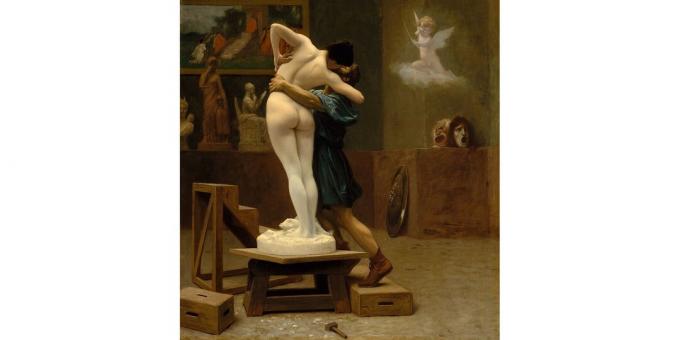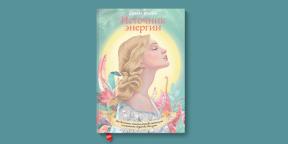Parasocial relationships: why we fall in love with stars and even fictional characters
Miscellaneous / / April 07, 2021
We can empathize with people on the other side of the screen just like real friends and family.
What is parasocial relationship
Parasocial is a special type of unequal relationship in which there isGulevich O. Psychology of Mass Communication: from Newspapers to the Internet. Textbook for universities. - SPb, 2020 feeling connected with figures from movies, books and media - famous people or characters. In this case, only viewers, listeners or readers are active participants in such relations.
Impatiently waiting for a new episode of a loved one sitcom, watching a favorite movie, following vlogs on YouTube, reposting posts on Twitter without answering the author, hairstyle like a favorite singer - all these are just some examples of parasocial relationships.
For the first time they started talking about back in the 50s of the last century. Then the American scientists Donald Horton and Richard Wall introduced Horton D., Wohl R. Mass communication and para-social interaction: Observation on intimacy at a distance. Psychiatry
in scientific circulation, the term "parasocial ties". It denoted the public's attachment to media persons, as well as a sense of belonging with them, discovered by researchers.The objects of parasocial relations can be not only actors, musicians and TV presenters. Often people have feelings for fictionalLiebers N., Schramm H. Parasocial Interactions and Relationships with Media Characters ‑ An Inventory of 60 Years of Research. Communication Research Trendscharacters. Although there are such great differences between the image created by a public person and the hero of a work of art - a big question.

With the popularization of digital technologies, parasocial relationships not only did not disappear, but becameChung S., Cho H. Fostering Parasocial Relationships with Celebrities on Social Media: Implications for Celebrity Endorsement. Psychology & Marketing much stronger, spread more widely. Today, a person can literally broadcast his life to other people, and social networks do form a kind of parallel reality. Another type of parasocial relationship has appeared, when a person monitors updates Internet pages of those people with whom they do not communicate in real life or even do not know at all.
How parasocial relationships arise and manifest
A number of factors strengthen a person's emotional attachment to his virtual "interlocutor".
ExistSchiappa E., Allen M., Gregg P. B. Parasocial Relationships and Television: A Meta-Analysis of the Effects. Mass media effects research: Advances through meta ‑ analysis addiction: the more time a user spends at the screen, the more he is susceptible to parasocial relationships. Gradually, the emotional connection with the object is strengthened.
Another important factor in strengthening such relationships is that "communication" increasingly takes place in a warm, even intimate atmosphere: for example, when a star takes off vlogs, rooms and so on.
The media personalities themselves are also dependent on parasocial relationships. They listenChung S., Cho H. Fostering Parasocial Relationships with Celebrities on Social Media: Implications for Celebrity Endorsement. Psychology & Marketing to the demands of the public and, if necessary, change the line of conduct. At the same time, they cannot fully become participants in communication, despite the fact that today's media are interactive - for example, they offer the opportunity to comment. The public person is often physically incapableGulevich O. Psychology of Mass Communication: from Newspapers to the Internet. Textbook for universities. - SPb, 2020 reply to all messages. More often than not, she does not know at all Horton D., Wohl R. Mass communication and para-social interaction: Observation on intimacy at a distance. Psychiatry about the existence of their "interlocutor".
Film actors and presenters, bloggers and even characters from books or films becomeHartmann T. Parasocial Interaction, Parasocial Relationships, and Well-Being. The Routledge Handbook of Media Use and Well-Being. Routledge. 2016 part of our life. The actions of strangers can occupy our thoughts, and tracking them can take time.
Feelings associated with an idol can be as strong as in a real relationship. We reallyGulevich O. Psychology of Mass Communication: from Newspapers to the Internet. Textbook for universities. - SPb, 2020 we deeply empathize with characters from the screen or book pages, which evoke an emotional response in us.
What are the consequences of parasocial relationships?
On the one hand, parasocial relationships create a false sense of intimacy. Such "communication", at least outwardly, is very similarHartmann T. Parasocial Interaction, Parasocial Relationships, and Well-Being. The Routledge Handbook of Media Use and Well-Being. Routledge. 2016 with the real, because many formal signs of live communication are observed. We listen to stories of parasocial "interlocutor», We follow his voice, gestures and emotions, we take his advice.
This can lead to different consequences. We discuss the personal life of a public person and his actions as if we live in the same family, see him as our friend or enemy, lover or object of worship. But in fact, all this is just phantoms and illusionHartmann T. Parasocial Interaction, Parasocial Relationships, and Well-Being. The Routledge Handbook of Media Use and Well-Being. Routledge. 2016existing only in our head.
The situation can get worseGulevich O. Psychology of Mass Communication: from Newspapers to the Internet. Textbook for universities. - SPb, 2020when a person has problems with live communication. Parasocial relationships are seductive in that they feel control: they ariseHartmann T. Parasocial Interaction, Parasocial Relationships, and Well-Being. The Routledge Handbook of Media Use and Well-Being. Routledge. 2016 at the request of the viewer and stop in the same way. This is not possible with real people.
A person who is deeply immersed in a "relationship" with an idol may eventually feel that he knows him better than others, understands him like no one else. Indeed, on the other side, he most often sees the ideal, and the stars themselves try to show only their best qualities.
It can be extremely painful if the real person does not match her image in the eyes of the fan. Frustration can escalate into persecution and take a tragic turn.
So, in 1996, the singer Bjork triedMeloy J. R., Sheridan L., Hoffmann J. Stalking, Threatening, and Attacking Public Figures. Oxford University Press US. 2008 kill a fan of Ricardo Lopez - after he found out that she has a beloved man. Prior to that, Lopez eight months "corresponded" with the performer in his diary.
In 2014, a man enteredBlankstein A. Sandra Bullock Stalker Thought He Was Her Husband, Say Police. NBC News to Sandra Bullock's house because he considered himself her husband. And five years later, a distraught fan with a knife attackedSaitama man used eye reflection in online image to stalk idol. Tokyo Reporter on Japanese singer Enu Matsuoka and inflicted facial injuries on her. To find out where she lives, the 26-year-old man carefully studied the girl's selfies and compared the reflections in her pupils with panoramas in Google Maps.
However, parasocial relationships do not always mean a severed connection with reality. They can even help expand your social circle and create new friends with similar interests. This is the basis of the fandom phenomenon (eng. fandom) - communities of fans of something or someone.
Idols also often inspire fans to create their own. And it can be not only fanfiction (compositions based on existing books, songs, films, and so on), but also original works.
What to do if you are in a parasocial relationship
The emergence of parasocial relationships is likely due toHartmann T. Parasocial Interaction, Parasocial Relationships, and Well-Being. The Routledge Handbook of Media Use and Well-Being. Routledge. 2016 with a decrease in social contacts in modern society. People try to compensate for this lack of connection in different ways. And the easiest way to do this without looking up from screen.
Once you find yourself prone to parasocial relationships, the first thing to ask yourself is: what do you need them for? Perhaps they just make up for the lack of communication, createDibble J. L., Rosaen S. F. Parasocial Interaction as More Than Friendship. Journal of Media Psychology feeling of friendship, friendship. In this case, there is nothing wrong with them, as long as they do not turn into a manic obsession.
The same video on Youtube can teach something useful or just cheer you up. Moreover, parasocial relationships canHartmann T. Parasocial Interaction, Parasocial Relationships, and Well-Being. The Routledge Handbook of Media Use and Well-Being. Routledge. 2016 partially mitigate the negative effects of lack of communication and lack of attachment - and this is useful for mental and physical health.
But you need to understand that parasocial relationships can ultimately crowd outLiebers N., Schramm H. Parasocial Interactions and Relationships with Media Characters ‑ An Inventory of 60 Years of Research. Communication Research Trends real, or even completely false, as in the examples with Bjork and Sandra Bullock. It can also cause feelings of worthlessness and self-doubt.
If you feel your parasocial relationship is taking too long, you are consumed with idol and you already lack such mediated "communication", perhaps you should go to a psychologist or psychotherapist.
Read also😍🎞️🎙️📖
- How to keep friendships at a distance
- From a first date to living together: how to build a strong relationship
- Tactile hunger: why touch and hug are so important and how to make up for them
- How technology and the internet have changed our perception of information
- Watching a lot of videos? Check if you are addicted to YouTube



